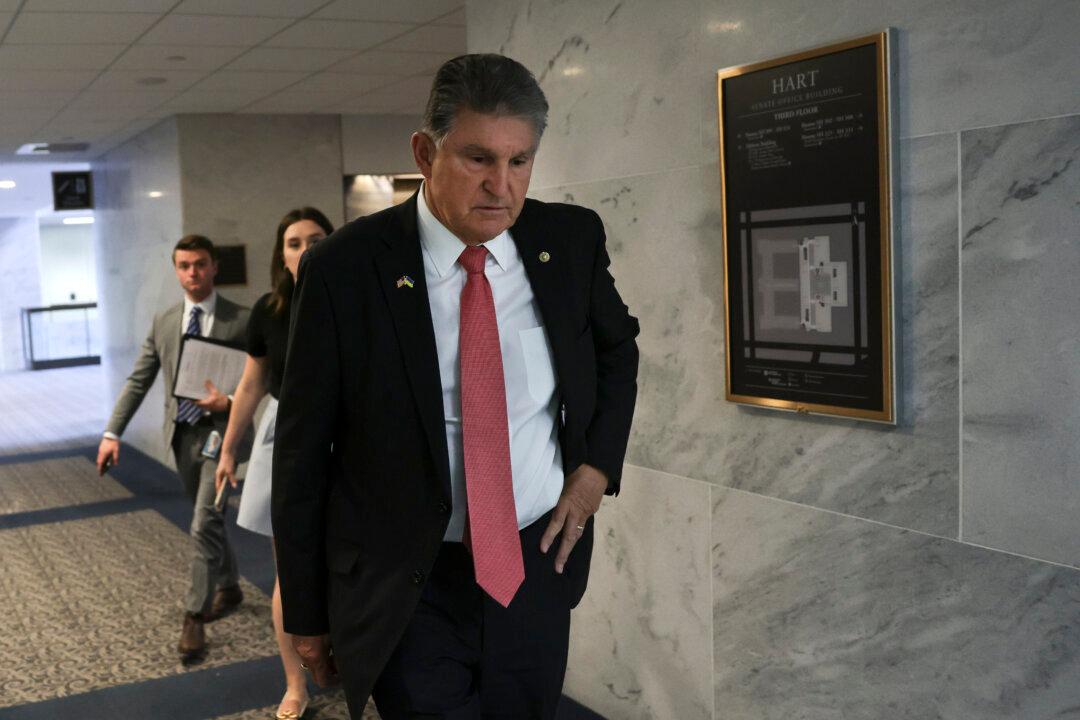Sen. Joe Manchin (D-W.Va.) declined to say when asked if he wants Democrats to keep control of the House and Senate after the 2022 midterms.
“Do you want the Democrats to keep control of the United States Senate and House of Representatives” in November? NBC’s Chuck Todd asked Manchin in a Sunday interview with “Meet the Press.”





